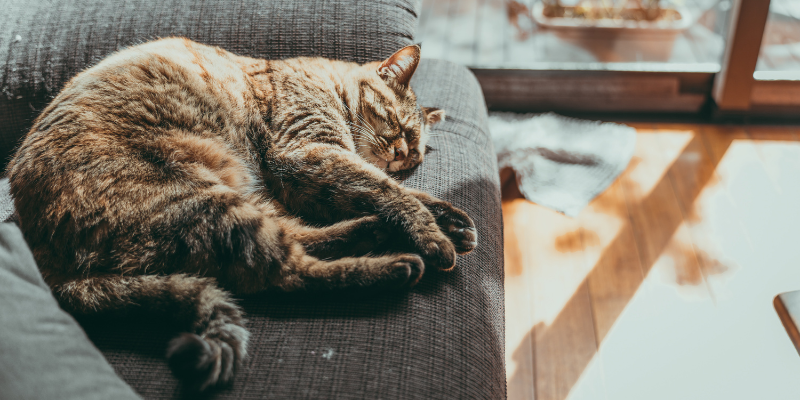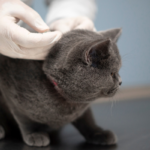Urinary straining, wee “accidents”, or blood-tinged urine in a young cat – what could be the cause? Contrary to popular belief, the problem may be more behavioural than bacterial!
Feline idiopathic cystitis (FIC) is an inflammatory bladder condition most commonly seen in young to middle-aged cats. This issue can be frustrating for owners as it can potentially result in recurrent episodes of abnormal urination, stress, and pain for their pet and even necessitate emergency vet visits and surgical treatment.
Here’s more about FIC, and how we can help soothe your pet’s stressed bladder!
Why does FIC happen?
FIC involves inflammation of the bladder, usually without the presence of infection. It is more common in highly-strung cats or cats who have undergone a recent stressful event, and is thought to occur due to complex interactions between the nervous system, bladder, and certain hormonal pathways.
FIC is a diagnosis made after we have ruled out other potential causes of abnormal urination, such as infection, bladder stones, or a bladder mass.
What are the symptoms of FIC?
- FIC can cause symptoms including:
- Blood-tinged urine
- Uncomfortable, painful or difficult urination
- Abnormal urinary behaviours, such as passing urine in odd places around the house
Unfortunately, male cats suffering from FIC may also develop a complete blockage of their urinary flow, resulting in severe and potentially life-threatening unwellness requiring emergency treatment.
How can we help?
If your cat shows symptoms of urinary tract disease, we should perform a prompt physical examination and, ideally, analyse its urine to check for infection. If the issues are recurrent, we may discuss imaging its bladder (via X-rays and sometimes ultrasound) to check for bladder stones or masses.
If your cat is diagnosed with FIC but is still able to pass urine, we can treat them medically, which usually involves pain relief, calming medications, and ensuring good hydration.
Cats with blocked urine flow should undergo an emergency procedure under anaesthesia to relieve the blockage. Depending on the severity of their unwellness, they may also require blood tests to check their kidney health and electrolyte (blood salts) balance and other supportive measures.
Cats who repeatedly become blocked may need to undergo a surgical procedure known as perineal urethrostomy. This involves permanently altering the opening of their urethra (the tube that allows your pet to pass urine out from their bladder), so it is wider and less likely to become blocked in the future.
What can you do at home to help your cat?
Keeping your cat in a healthy, slim body condition, ensuring good hydration, and supporting its mental health can help prevent urinary problems.
If your cat is overweight, consult our vets regarding how to support healthy gradual weight loss.
Encouraging good hydration in your cat will help to keep their urine dilute, making them less likely to form some types of bladder crystals or stones. Depending on your cat’s preferences, our team can advise you on suitable wet food or prescription diets, or the use of feline drinking fountains.
Lastly, given FIC has a behavioural component, we can advise you on supporting your cat’s mental health with environmental enrichment, and, for particularly anxious cats, the potential use of calming medications.
For more help with your cat’s health, consult our feline-friendly team!





